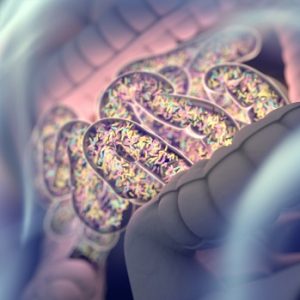
More evidence that low-calorie sweeteners are bad for your health
Studies show that artificial sweeteners can raise the risk of hypertension, metabolic syndrome, type 2 diabetes and heart disease, including stroke.

Natural Health News — Compared to a normal diet, one that is high in fat or sugar can cause changes in gut bacteria that may lead to a significant loss of “cognitive flexibility” – essentially the power to adapt and adjust to changing situations.
This effect was most serious on the high-sugar diet, which also showed an impairment of early learning for both long-term and short-term memory.
» Western diets are high in fat and sucrose alter the balance of bacteria in the gut, leading to adverse effects on the brain and behavior.
» Scientists fed mice on high-sugar and high-fat diets, resembling what humans eat in the Western Pattern Diet, then subjected them to a range of cognitive tests.
» High-sugar diets were more destructive than high fat diets, causing greater alterations in the gut biome and more impairment of spatial memory and cognitive flexibility.
The research published in the journal Neuroscience, was done with laboratory mice fed different diets and then given a variety of tests, such as water maze testing, to monitor changes in their mental and physical function, and associated impacts on various types of bacteria.
Charting new pathways
Western diets are high in fat and sucrose and can influence behavior and gut microbiota. There is growing evidence that altering the microbiome – a complex community in the digestive system of about 100 trillion microorganisms – can influence the brain and behavior.
“It’s increasingly clear that our gut bacteria, or microbiota, can communicate with the human brain,” said researcher Kathy Magnusson, a professor in the OSU College of Veterinary Medicine and principal investigator with the Linus Pauling Institute.
“Bacteria can release compounds that act as neurotransmitters, stimulate sensory nerves or the immune system, and affect a wide range of biological functions,” she said. “We’re not sure just what messages are being sent, but we are tracking down the pathways and the effects.”
Brain flexibility helps us adapt
In this research, after just four weeks on a high-fat or a high-sugar diet, the performance of mice on various tests of mental and physical function began to drop, compared to animals on a normal diet. One of the most pronounced changes was in what researchers call cognitive flexibility.
“The impairment of cognitive flexibility in this study was pretty strong,” Magnusson said. “Think about driving home on a route that’s very familiar to you, something you’re used to doing. Then one day that road is closed and you suddenly have to find a new way home.”
A person with high levels of cognitive flexibility would immediately adapt to the change, determine the next best route home, and remember to use the same route the following morning, all with little problem. With impaired flexibility, it might be a long, slow, and stressful way home.
This study was done with young animals, she said, which ordinarily would have a healthier biological system that’s better able to resist pathological influences from their microbiota. The findings might be even more pronounced with older animals or humans with compromised intestinal systems.
What’s often referred to as the “Western diet,” or foods that are high in fat, sugars and simple carbohydrates, has been linked to a range of chronic illnesses in the United States, including the diabetes, heart disease and obesity. This new research suggests that the interaction between food and the microbiome could also influence diseases like Alzheimer’s as well.

Please subscribe me to your newsletter mailing list. I have read the
privacy statement